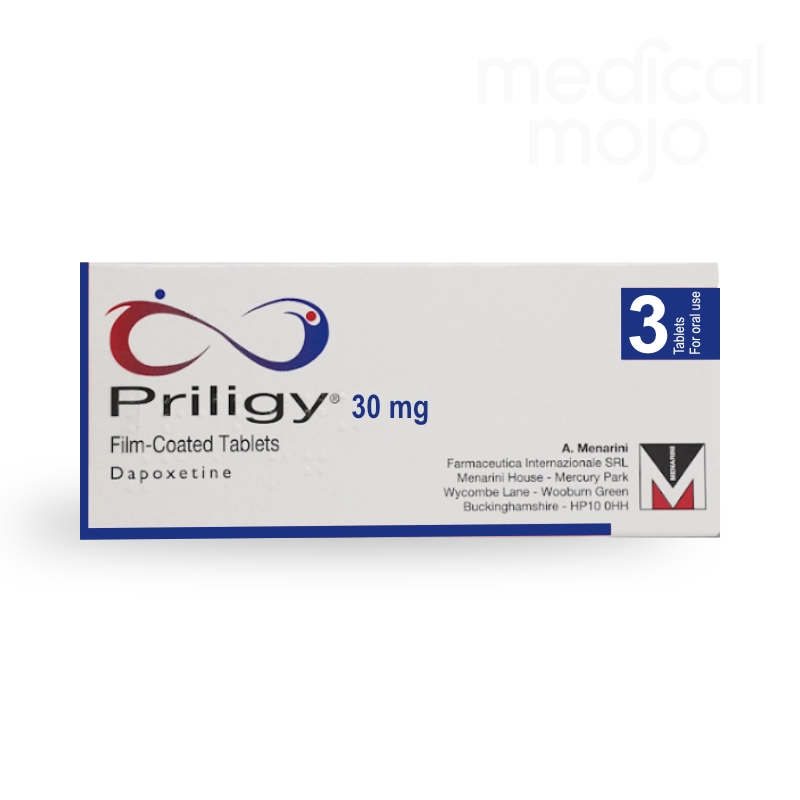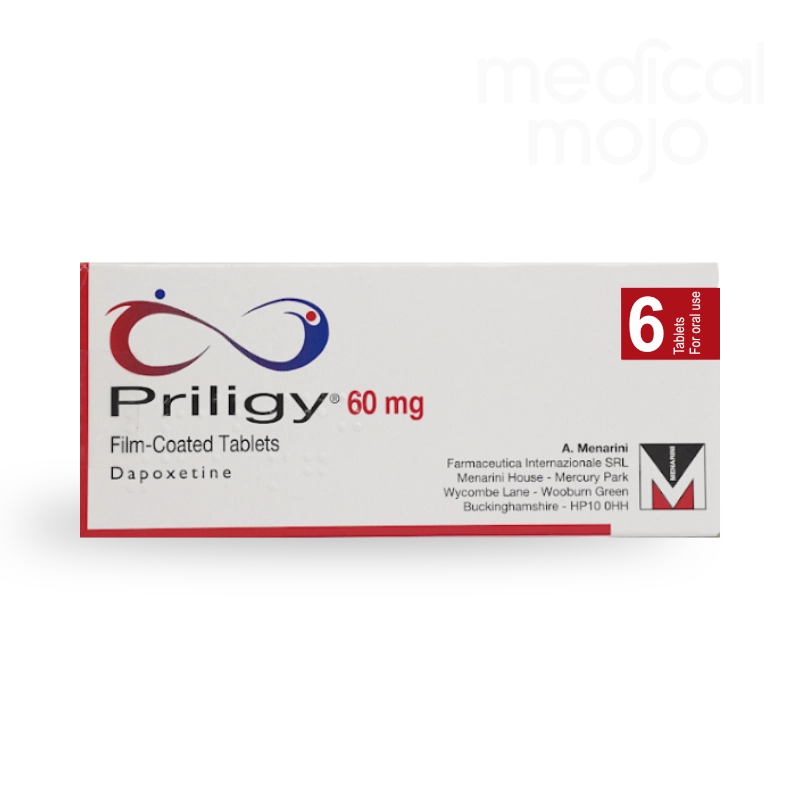What is Priligy and what is it used for?
Priligy is a medication containing the active ingredient dapoxetine, primarily used to treat premature ejaculation in men aged 18 to 64. It helps delay ejaculation and improves control over the timing of ejaculation, which can reduce the frustration or anxiety associated with premature ejaculation.
What is premature ejaculation?
Premature ejaculation is a condition where ejaculation happens sooner than desired during sexual activity, often within two minutes. It can cause distress and impact relationships. Priligy works by increasing the time it takes to ejaculate, helping men achieve better control.
How is Priligy taken?
Priligy is usually taken 1 to 3 hours before sexual activity. It should not be taken more than once every 24 hours. The starting dose is typically 30 mg, which may be increased to 60 mg depending on your doctor's advice. The tablet should be swallowed whole with a full glass of water.
How does Priligy work to delay ejaculation?
The active ingredient in Priligy, dapoxetine, is a selective serotonin reuptake inhibitor (SSRI). It works by increasing the activity of serotonin in the nervous system, which delays the ejaculation reflex and increases the time it takes to ejaculate. This gives men better control over ejaculation and can improve sexual satisfaction.
What should I avoid while taking Priligy?
You should avoid alcohol while taking Priligy, as it can enhance side effects like dizziness, sleepiness, and slow reactions. Also, avoid taking Priligy if you are dehydrated, as this can increase the risk of fainting. Make sure to drink plenty of water when taking the medication.
Are there any specific conditions or medications that interact with Priligy?
Yes, do not take Priligy if you are on medications such as monoamine oxidase inhibitors (MAOIs), thioridazine, certain antidepressants, lithium, or medications for fungal infections and HIV. Always consult your doctor if you are taking other medications to ensure they do not interact with Priligy.
What are the common side effects of Priligy?
Common side effects include dizziness, headache, nausea, and feeling lightheaded when standing up. Some men may also experience difficulty sleeping, feeling irritable, or having a decreased interest in sex.
What should I do if I experience serious side effects?
If you experience serious side effects like seizures, fainting, changes in mood, or thoughts of suicide, stop taking Priligy immediately and contact your doctor or seek medical attention.
How should I take Priligy for the best results?
Take one tablet 1 to 3 hours before anticipated sexual activity. Swallow the tablet whole with a full glass of water. Do not take more than one tablet in a 24-hour period. Priligy can be taken with or without food, but you should avoid alcohol while taking it.
What are the active and inactive ingredients in Priligy?
The active ingredient in Priligy is dapoxetine. The inactive ingredients include lactose monohydrate, microcrystalline cellulose, croscarmellose sodium, colloidal anhydrous silica, magnesium stearate, and others used in the tablet's core and coating.
Can Priligy cause allergic reactions?
Yes, like all medicines, Priligy can cause allergic reactions in some people. Symptoms may include rash, itching, or swelling, particularly of the face, tongue, or throat. If you experience any of these symptoms, stop taking Priligy and seek medical help immediately.











